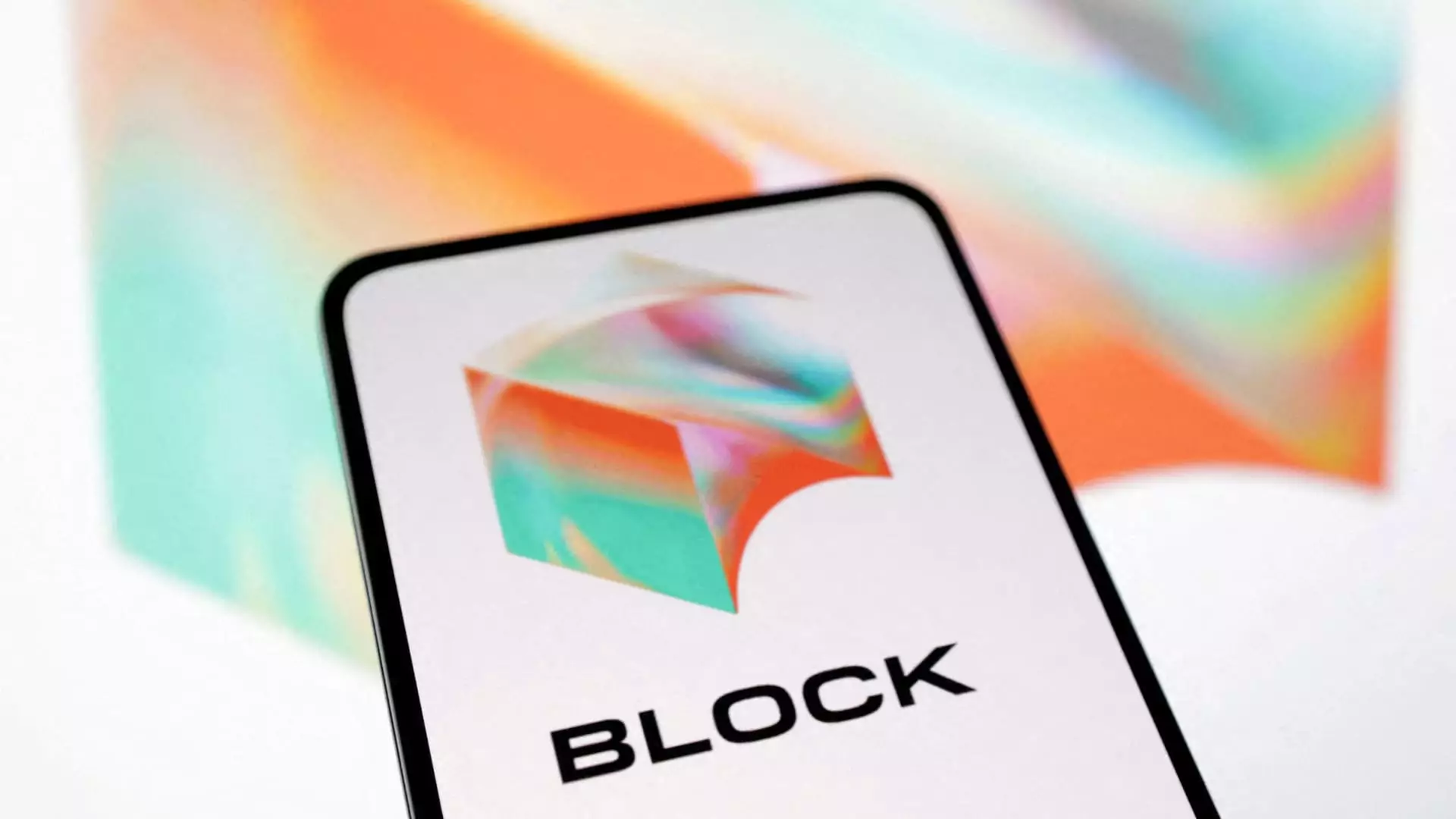The financial technology sector has seen intense scrutiny as companies announce their quarterly earnings, and Block, Inc. (previously known as Square), has not escaped this spotlight. On Thursday, Block unveiled its third-quarter financial results, which unfortunately fell short of Wall Street’s anticipations. The post-release reaction saw the company’s stock experience an initial decline in after-hours trading, yet it soon rebounded, spurred on by investor interest in profitability metrics rather than just raw revenue. This presents a fascinating case study in how the market prioritizes different financial indicators in evaluating a company’s performance.
Block reported adjusted earnings per share (EPS) of 88 cents, slightly surpassing the anticipated figure of 87 cents. However, the more compelling narrative stemmed from the revenue side, where the company registered $5.98 billion against a forecast of $6.24 billion, marking a significant miss on one of the crucial performance outlines. Despite this discrepancy, Chief Financial Officer Amrita Ahuja indicated to CNBC that analysts are increasingly concentrating on gross profit over revenue alone. Block showcased impressive gross profit of $2.25 billion, reflecting a 19% uptick year-over-year, which adds complexity to the financial narrative.
Moreover, the firm also reported net income of approximately $283.7 million, translating to 45 cents a share, an admirable turnaround from the $88.7 million loss reported in the same quarter last year. This recovery showcases effective management strategies and renewed focus on profitability, something which Dorsey framed within the broader spectrum of the company’s operational revival.
Vital to Block’s success is its Cash App platform, a significant driver of both revenue and user engagement. The division reported an impressive gross profit of $1.31 billion, marking a notable 21% rise year-over-year. Furthermore, the number of monthly active users of its Cash App Card experienced an 11% increase, with the total exceeding 24 million. While Cash App contributes meaningfully to Block’s overall profitability, its gross payment volume still fell short, amounting to $62.4 billion against the expected $64.3 billion. Such metrics reveal both the strength and the challenge the company faces in navigating through a competitive fintech landscape.
Looking ahead, Block projects a robust 14% growth in gross profit for the fourth quarter, which hints at potential recovery strategies that may enhance overall market confidence.
Amidst the mixed financial results, Block’s aggressive strategy in the buy now, pay later (BNPL) arena is noteworthy. The acquisition of Afterpay for $29 billion in 2021 illustrates a commitment to pioneering financial products that cater to modern consumer behaviors. CEO Jack Dorsey’s recent statement emphasized transforming Cash App Cards into competitive alternatives to traditional credit cards, showcasing an ambition to remodel the payment culture.
Ahuja’s insights into leveraging artificial intelligence for offering smarter lending solutions resonate particularly with current market demands. The deployment of AI has proven beneficial in maintaining low loss rates across various products, with only 1% for BNPL and 3% for Cash App Borrow. This innovative edge could serve to optimize risk management while also augmenting service offerings to consumers and businesses alike.
Block’s financial results also indicate a need for strategic realignment in light of evolving market environments. The company has announced a scaling back on investments in its Tidal music streaming service and a complete wind-down of TBD, its Bitcoin-focused initiative. These moves, accompanied by layoffs earlier in the year, signal a discerning approach to resource allocation, intended to drive efficiency and enhance shareholder value.
Despite these cutbacks, Dorsey reaffirmed the company’s commitment to Bitcoin accessibility through Cash App, revealing that they hold approximately 8,300 bitcoins, valued around $630 million at the end of the quarter. Such strategic decisions emphasize the delicate balance Block strives to achieve between innovation and operational pragmatism.
While Block’s third-quarter performance presented certain challenges, particularly in revenue generation, the company is navigating the fintech landscape with an intricately crafted strategy. The focus on gross profit, technological advancements in lending, and a willingness to pivot in response to market needs could ultimately position Block for sustained growth in a competitive sector. Investors will undoubtedly be monitoring how these strategies unfold in the coming quarters.

